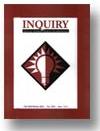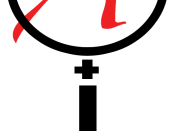"Logic is not everything. But it is something--something which can be taught, something which can be learned, something which can help us in some degree to think more sensibly about the dangerous world in which we live" (Fischer, 1970, p 306). This statement sums up why it is important to study the logical fallacies and why the fallacies are important to critical thinking and decision-making. Therefore, the following describes why knowing the fallacies are essential to critical thinking and decision-making and three logical fallacies that can occur: the fallacy of equivocation, the loaded question fallacy, and the straw man fallacy.
The fallacy of equivocation transpires when a single word or phrase is used with two different meanings in an argument. In order to prove that the fallacy of equivocation has occurred, a person must identify the word that is used twice and then provide a definition for one use of the word that would not be correct for the second use.
The Fallacy Files gives this example: "All banks are beside rivers. Therefore, the bank where I deposit my money is beside a river."
Due to the fallacy of equivocation, this argument is clearly unsound. The word "bank" has two unrelated meanings in the argument. The first meaning for "bank" is "riverside". This definition creates an invalid argument with a true premise. If "financial institution" were substituted for "bank", the argument is valid, but the premise is false.
The loaded question fallacy is "a question with a false, disputed, or question-begging presupposition" (Curtis, 2001-2005). Not all loaded questions are fallacies. If the loaded question is used in an argument, then the loaded question is a fallacy. The loaded questions are often used to trick someone into implying something they did not intend. The following is an example of the...


